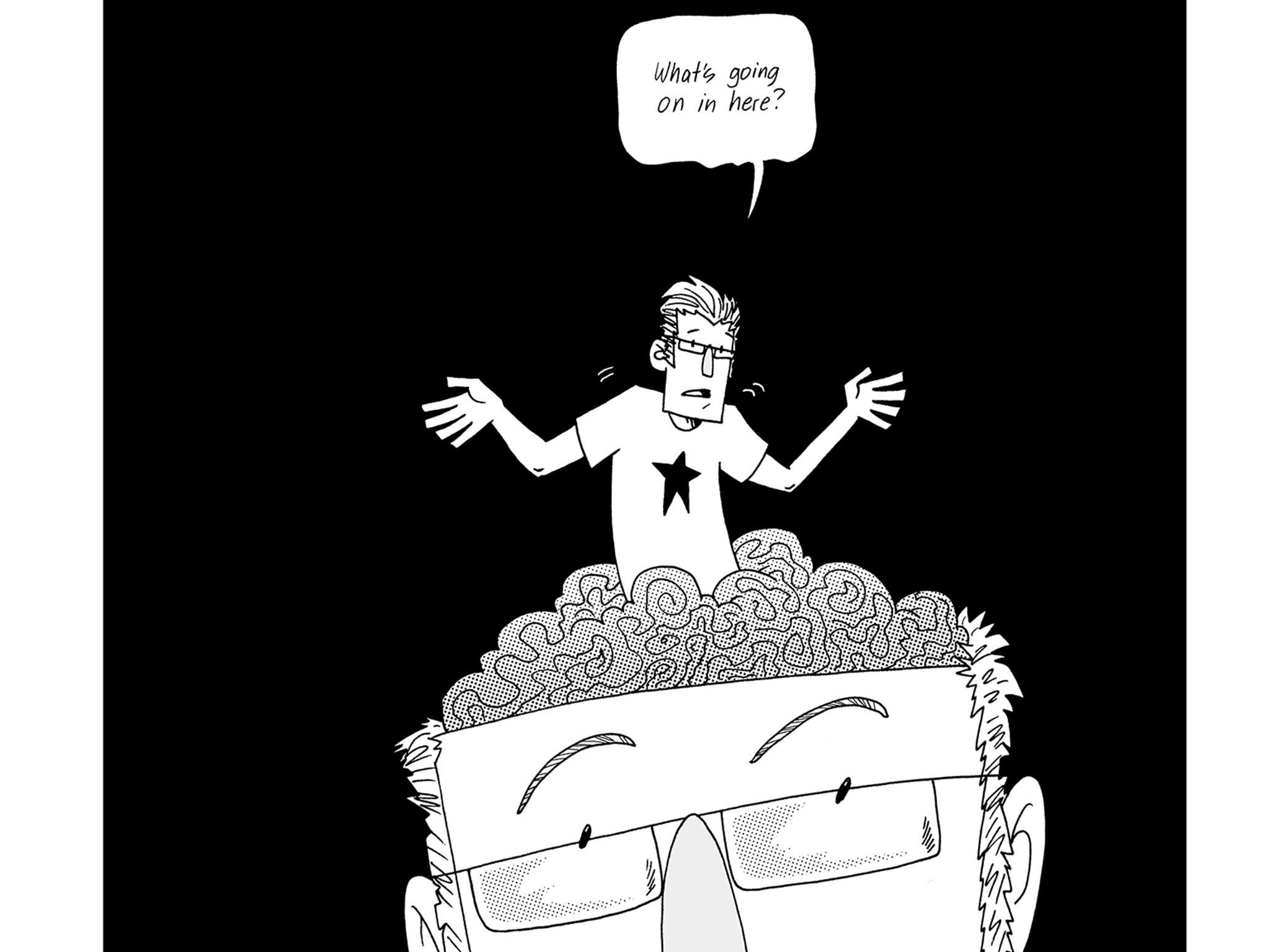Raised on Ritalin: A comic book artist's struggle with 'being on a hard drug since he was 9'
Artist Tyler Page talks about his struggles with ADHD crept into his adulthood

Tyler Page was eight years old when he was diagnosed with ADHD. In his own words, just shy of his ninth birthday on November 27 1986, he was put on medication and "became a hard drug user".
After taking the medicine for eight years, he ditched Ritalin, thinking he had grown out of his childhood condition. But in his early twenties his anxiety levels crawled upwards and a doctor confirmed that his ADHD had not faded away. Page is now a 40-year-old artist based in Minneapolis. His comic Raised on Ritalin explores how ADHD has affected his life, as well as those of his loved ones. It questions what causes the disease, how it is treated, and whether it is even real.
In the book, Page retells painful and fascinating moments including combing through the doctor’s notes when he was diagnosed as a child in his early twenties, and how he in turn worries his children might also be affected. He is faced with difficult questions, like whether Ritalin helped him and whether he would also medicate his young daughter and son.
Symptoms of ADHD in children can include being easily distracted, making careless mistakes with work, and having difficulty with organisation. However, the effects of the condition are less understood in adults. Those with the condition are characterised as having mood swings, extreme impatience, and an inability to deal with stress.
Complicating matters further, the mode of attack to deal with the condition can be different for each patient. While some rely on medication, others reject it entirely.
“I definitely see medication as a last resort," says Page. "Or a choice you take when you, or someone, is in ‘crisis’ mode."
"After being re-diagnosed as an adult, getting to a point where I just could not, despite my best intentions, keep it together I used the medication to re-center myself. To get my feet back on the ground and my bearings. Once I felt I was there, I utilised other strategies. Which isn't to say medication isn't unnecessary. I've definitely heard from people, mostly adults, who still need it and that's fine as long as it's working for them.
"If I had to face that issue with my kids I'd make that decision only if they really were suffering and unable to function day-to-day. And I'd make that decision having a lot of facts at hand.”
Since trying “pretty much every ADHD med” when he was re-diagnosed, Page hasn’t used mediation for seven years. He says he is optimistic about the shift in the approach to ADHD towards the social and emotional aspects of the condition which he feel has helped his case.
“It's important because, especially for children, they don't have as much control over their social and family world as an adult. If they are growing up in a chaotic environment that is going to negatively affect them, in all likelihood. These children, and adults too, need stable, dependable relationships they can count on. Those types of relationships will help keep them grounded, reel them in so to speak.”
It took five years for Page to piece together his stories and findings for the comic before its release in late 2016. But while he says he felt vulnerable putting his most intimate moments out for readers to digest, he says it also felt like a “huge release”.
“When I first started working on it I was hesitant to talk about it. But as I completed more and more of it and posted it online, I began to get lots of emails and comments from people who liked it and thanked me for working on it. Many of these people told me they identified very closely with the experiences I had gone through so having some of that validation definitely made it easier to start talking about in public.
Despite the controversial topic, the response to the book which have come from across the world has been largely positive, he says.
“People all over the world have said they felt like they could have written this book, or that it helped them make sense of someone else in their family, a sibling, a parent, or a friend."
“At a local comics show I had a dad walk up to my table, see the book, pick it up and say, ‘My son started Ritalin about a year ago. Six months ago so did I’," he recalls. "I will always remember how glad he seemed to have found the book, knowing here was another guy his age who was talking about this and the struggles that go along with it in public.”
After his own painful confusion, that is exactly what he hoped his book would achieve.
“I read dozens of books, articles, and papers as part of my research and I never found one that seemed to bring everything under one roof. I wanted to paint a picture of how complex this is, that it really defies the 30-second soundbite on news or internet article. Then once armed with all the information, people can make their own decisions.”
Join our commenting forum
Join thought-provoking conversations, follow other Independent readers and see their replies
Comments
Bookmark popover
Removed from bookmarks